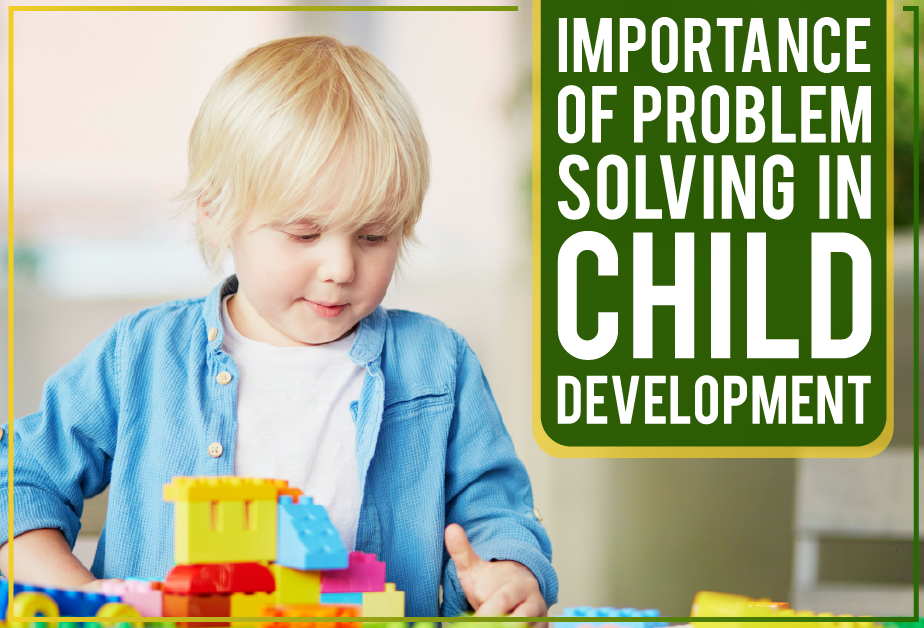Importance of Problem-solving in Child Development
The development of problem-solving skills is an essential aspect of child development. Learning how to approach and solve problems, both at home and school, can affect the quality of a child’s relationships with others. Problem-solving also encourages creativity, which is key to success later on in life. In this post, we will discuss the importance of problem-solving for children.
When do children develop problem-solving skills?
Problem-solving skills often start to emerge during the preschool years. In many cases, children obtain these skills by observing adults who model their own behavior as they face various situations and come up with solutions. These role models help children understand how their actions can affect problems and their outcomes.
The importance of problem-solving for children
One crucial aspect of problem-solving is identifying a problem at its earliest stage so that one can prevent it from escalating into something more serious. For example, if children have a dispute with a playmate, they need to learn about the importance of sharing and taking turns. This kind of knowledge is necessary in order for children to develop healthy relationships with others.
Furthermore, problem-solving plays a vital role in children's cognitive development. It encourages creativity because it allows kids to view situations from different perspectives. Sometimes creative solutions are better than more obvious ones when addressing problems.
Problems vary
Even though problem-solving plays a critical role throughout child development, it's also important to note that not every problem requires the same type of solution. For example, children wouldn't use the same approach with a broken toy as they would for completing academic assignments. Therefore, it's helpful to keep in mind that there are different types of problems, and each has an associated function or purpose.
The problems that children typically face can be divided into two categories: physical and social.
Physical problems include situations such as getting food when we’re hungry. On the other hand, social problems may involve conflicts with friends or siblings, or how to respond if one of your parents is upset. Understanding these different types of conflicts can help children understand which type of problem-solving strategy will work best depending on the context.
Learning how to solve problems
While learning how to solve problems is an integral part of child development, this process isn't always easy, especially in complex situations with several obstacles. In complicated situations, a slower approach is often best. This will allow children to explore different options and weigh the pros and cons.
Being able to settle differences with others helps children establish positive relationships. Moreover, problem-solving encourages creativity, which is another important element of growing into a successful adult. Understanding different types of problems will help children come up with solutions.
Why are problem-solving skills important for kids?
There are many reasons why problem-solving skills are essential for kids. When children can effectively face and address conflicts, they exercise their imaginations, creativity, critical thinking skills, and logic in order to address a difficult situation. Over time, children who are given opportunities to practice their problem-solving skills will grow more confident in their abilities.
When confronted with new problems, children can work out solutions through reasoning, rather than relying on others for help. This can result in higher self-confidence. If children have poor social competence, they may find it hard to form relationships with others.
Kids who lack academic motivation are less likely to succeed in school, while possessing strong problem-solving skills will encourage them to engage more in the learning process.
Conclusion
Problem-solving can help children adapt better in a variety of settings. They'll also have the ability to face challenges with determination.
Problem-solving plays a vital role in child development. This important skill is not just coming up with a solution. Rather, it involves using one's creativity, thinking through possibilities, reasoning through potential plans or pathways, and using logic to address complex problems or questions.
Additionally, confronting problems with confidence can help children feel better about themselves and have higher self-esteem. It is also vital for academic success later on. If children lack social competence, they may find it hard to form relationships with others.
Learning how to problem-solve requires practice, which can help boost motivation and improve academic performance too!
At Mrs. Myers' Learning Lab, we know the importance of problem-solving during child development. We offer programs that instill creativity and analytical skills. Call us today for more information!





